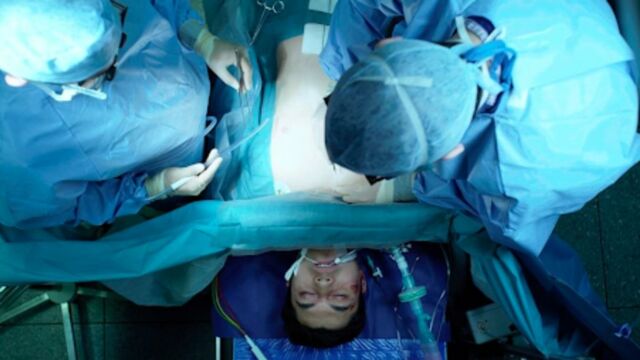For many people, thinking of the moment when their time on earth is finally over sends shivers down their spine. It is a moment many dread and try their best to never think about. But in the rare moment, they do dare reflect on it, they are filled with curiosity and wonder, ‘Will my life really flash before my eyes? And if it does will it have been a worthwhile existence? I hope I'm not disappointed or wrong in my beliefs’.
Discover our latest podcast
Many people who have come close to death or have temporarily flatlined have reported peculiar experiences colloquially referred to as Near-death Experiences. These dream-like sequences mix vivid memories, bodily sensations and surreal visions reminiscent of psychedelic experiences; these have led many to believe that they’ve seen the afterlife or experienced god.
What is the origin of Near-death Experiences?
Science has attempted to clarify the origins of these visions; in 2018 a study administered low doses of N, N-dimethyltryptamine (DMT) and asked them to describe their experiences. What the group described ended up being very close to what people who came out of near-death experiences reported.
This is because DMT was found to be endogenous to the brain of mammals. Traces of the substances have been found in mammal brains but these have also been found to contain the necessary enzymes to fabricate it, according to a 2019 University of Michigan study. The ability to fabricate DMT seems to be at the same level as our brain’s ability to fabricate dopamine and serotonin; these are two of the most important substances for human functioning which respectively control pleasure and stabilize mood. The two chemicals are also the target of antidepressants and mood stabilizers often prescribed to treat various mental illnesses. Thus it seems as though DMT carries some importance to our brains which scientists have yet to precisely determine.
Is DMT responsible for Near-death Experiences?
The same researchers from the University of Michigan have sought to estimate DMT levels at the moment of passing. They measured DMT levels in rats as they suffered cardiac arrest and noticed a tenfold spike giving way to the theory that this is mimicked by the human body and that DMT may indeed flood the brain in the moment of passing which may result in the reported psychedelic nature of Near-death Experiences.
As such for many, taking exogenous DMT has become akin to inducing a state adjacent to NDEs to seek insights that otherwise wouldn’t be acquired until death. Clarity, closure and enlightenment have become a destination at the end of a 20-minute psychedelic trip that promises life-changing effects.
Read more:
⋙ 'Magic mushrooms' could be the solution to severe depression, trials show
⋙ New study reveals near-death experiences are 'other dimensions of reality'
⋙ People who survive cardiac arrest have reported memories of their near-death experience
Sources:
Scientific American: New Clues Found in Understanding Near-Death Experiences
Big Think: Are near-death experiences just psychedelic trips?















